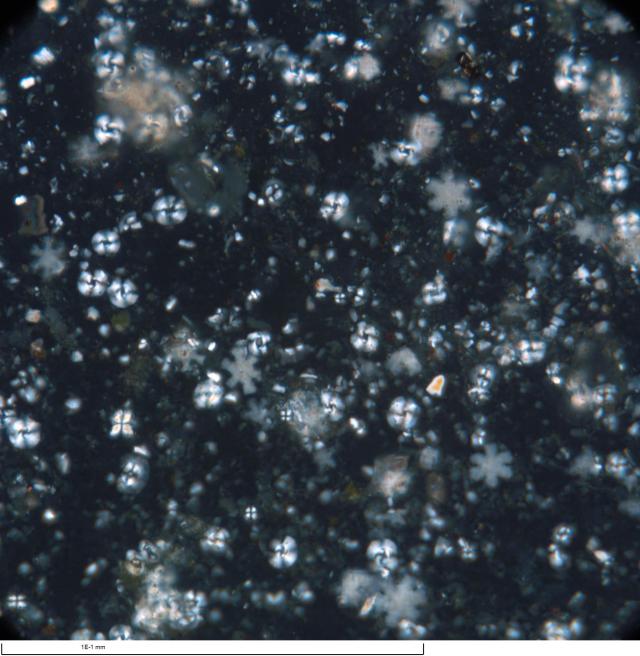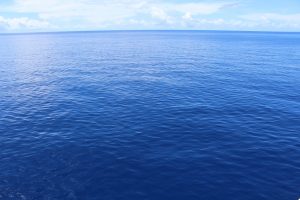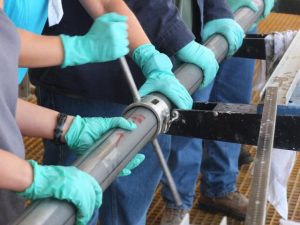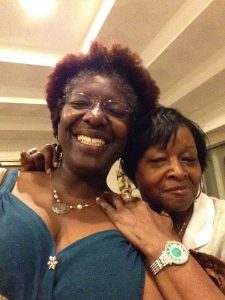
May All Scientists Have Good Mothers!
I know, it may seem a bit odd to start a blog entry on an advanced oceangoing research vessel by saying something that may seem so left of center – but hear me out. And if you have not the best relationship with your natal person – please substitute an appropriate corollary. At School of Rock (SOR) we start every day with a go-around where we share some aspect of our professional craft; a bit of our passions off ship; or a tiny insight to what drives us as science educators. The prompt a few days ago was approximately, “Who influenced you to become a scientist?”
The answers ranged from: mothers who took us camping every summer, to those who allowed us to mess up the just cleaned house in pursuit of a really good idea, to moms who fostered without limits our curiosity in the natural world, to those who encouraged us to explore anew by purchasing science supplies from the household budget. My own mother forgave me when my precious horde of “squigglies” disappeared inside the house. (They were mosquito larvae.) These stories have in common three main themes that relate directly to the work we do on the expedition and our overall work as scientists:

First, all science exists in a healthy environment of learning, exploration and discovery.
Second, all science thrives when underwritten by supportive (and funded!) programming.
And finally, all STEAM activities are enriched by a diversity of ideas, approach, identity and experience.
Exploration, Learning and Discovery is the essence of the craft of inquiry. Every scientist, and every science activity supporting person I have encountered aboard the Joides Resolution (JR) is a curious problem solver who relishes making something work when a machine or tool malfunctions while in the middle of the ocean. Repeat after me: IN THE MIDDLE OF THE OCEAN! I am surrounded by people who know how to create working solutions through watching others, asking questions, being well-trained, calling an expert offshore, or repeatedly trying and failing. Proactively if possible, for much of the lab space on board is custom build and modified to extract the most information as efficiently as possible from the sediments. And that is on top of the inquiry-busting deep sea drilling that is the ship’s central mission. Every day I see site-based science happening and that is a disposition I want to promote in my science classroom.

Supportive Programming is what makes all science works. Finito. Despite what the movies show – no scientist works alone, for we have all been mentored, educated, inspired and instructed. Whether informally by our mothers, or formally by various educational systems. Science on board the Joides is a community affair and there really is no room (quite literally – no room!) for the isolated prima donna. Every mission is lead by a pair of co-scientists in 12-hour shifts. Drilling and extracting a core requires a team. Core flow into the lab from the drilling floor requires a team. Extraction of information from a core sample requires a team. Designing the multiple systems that hold and disseminate the data requires a team. Driving the ship and supporting the shipboard residents requires a team. Reading the applications and assigning core expeditions is a team effort. You get where I am going. Exploration of our planet on scales large and small has been underwritten by people who shared our passion for answering questions. Where there is no programmatic support, inquiry can be suffocated, because we are on this boat, as in life, together. And stable funding is required in the pursuit of answers – let’s be real, good science ain’t free – and the craft of inquiry is materials dependent.
-300x225.jpg)
STEAM Diversity in (Geo)Science seems like the coolest thing to put on a banner or funding proposal these days. I bet there are like 12 grants being worked on right now with one or more of the words in bold in the heading. (I’ll get my Letter of Intent in on time, promise!) We are a collective from all over the world whose classroom leadership time ranges from 3 years to over 30. And this particular SOR expedition (371T) is specifically designed around promoting cross-institutional and cross-grade level interactions while we work through our myriad experiences in pedagogy and classroom type. Every K-12 teacher is paired with faculty at a nearby college or university and we are co-designing projects to enrich the STEAM (Science, Technology, Engineering, Arts, and Math) programming in our local communities. And by local, I mean in our communities on 3 continents (see above about supportive programming). On this expedition we have brought our full selves to solving the problems of the geoscience experience gap as it manifests itself throughout a learner’s educational experience. We are harvesting our passion for science to create better worlds of inquiry for our students from all walks of life, while acknowledging that scientific inquiry may have an image problem that makes it seem inaccessible to a variety of bodies. In our working sessions suggestions fly, questions are treated like the delicate things they are, ideas are shared, and relationships are being formed across age, hierarchy, identity, and social position. My experience on the JR has been one of the purest inquiry spaces I have participated in in my own 25 years as an educator and I have perched on my learning edge more than once. We are science educators modeling the power of STEAM while interrogating our role in making our schools and classrooms function better for all learners.
Just as our mothers so capably trained us to do.
~ Kerrita K. Mayfield, PhD

My mother’s first selfie before I joined the ship. She is also Dr. Mayfield.